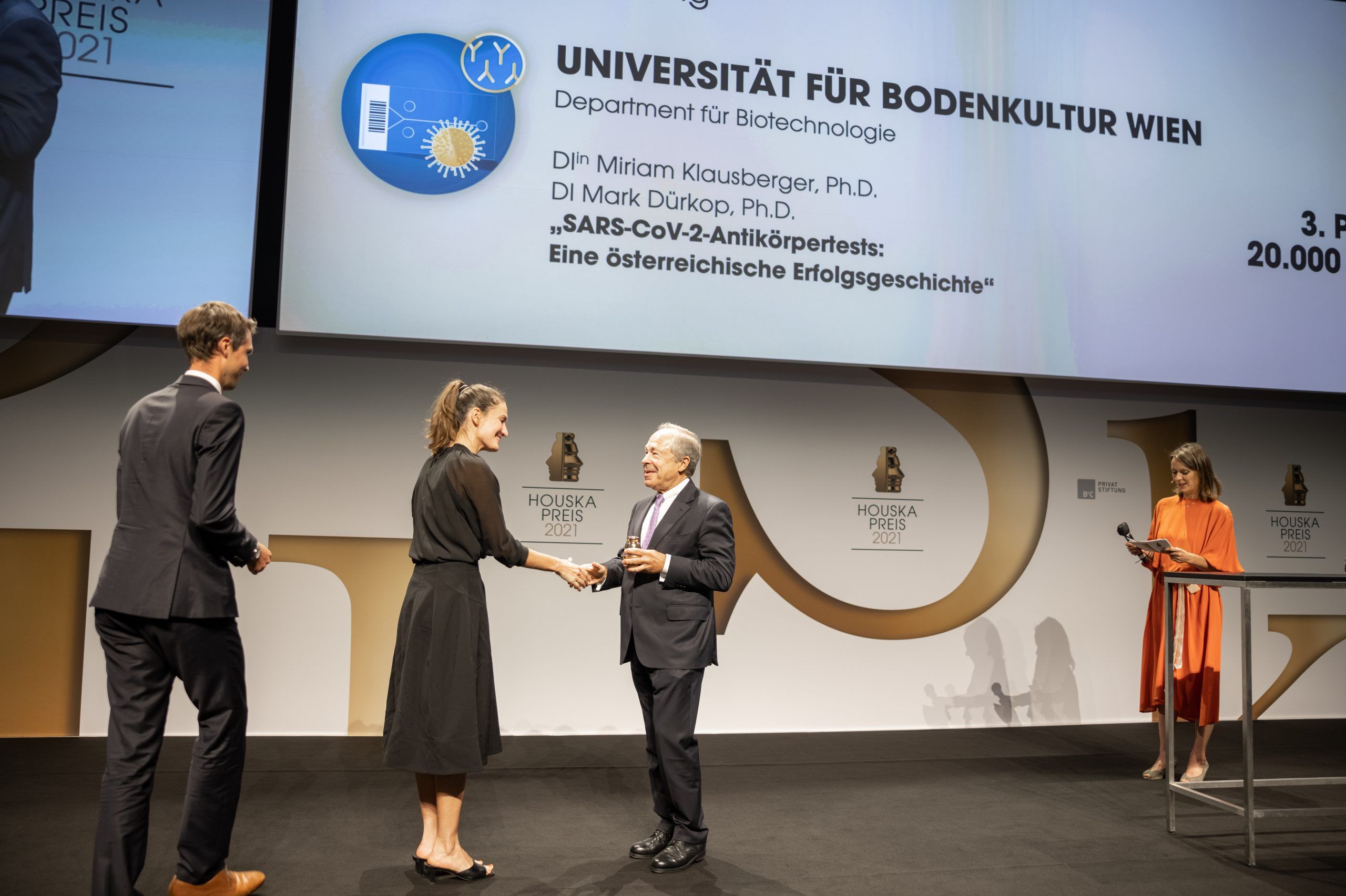
(Vienna, 28 September 2021) A consortium comprising the University of Natural Resources and Applied Life Sciences (BOKU), the University of Veterinary Medicine Vienna and the Medical University of Vienna was awarded the Audience Prize in the "Higher Education Research" category at the Houska Prize 2021 award ceremony. The researchers developed two CE-certified quantitative SARS-CoV-2 antibody tests.
The Houska Prize, initiated by the B&C Private Trust, was awarded for the 16th time in Vienna's Museum Quarter. With total prize money of €500,000, the Houska Prize is the largest private prize for application-led research in Austria. This year, €250,000 were again awarded in each of the categories "Higher Education Research" and "Research & Development in SMEs". The winners of the Audience Prize were once again chosen in advance by the public by means of online voting. In the category "Higher Education Research", third place went to Miriam Klausberger and Mark Dürkop from the Department of Biotechnology at the University of Natural Resources and Applied Life Sciences, Vienna, who developed a reliable SARS-CoV-2 antibody test in collaboration with a consortium of universities and companies.
The consortium of several institutions - BOKU Vienna, the University of Veterinary Medicine Vienna, the Medical University of Vienna (Christoph Binder), the Austrian Centre of Industrial Biotechnology (ACIB), Viennese commercial partner Technoclone GmbH, also working with the Austrian Institute of Technology (AIT), the Austrian Agency for Health and Food Safety (AGES) and the BOKU-affiliated start-up enGenes Biotech GmbH - developed two CE-certified quantitative SARS-CoV-2 antibody tests. The two test kits, which detect antibodies against the viral spike protein or the nucleocapsid protein, are available from the Viennese company Technoclone GmbH. Due to the scope of the project and the broad-based expertise of the researchers involved, the consortium not only succeeded in developing the two certified SARS-CoV-2 antibody tests but also the antigens for further coronavirus research.
The consortium efficiently combined expertise from different academic and research institutions and existing know-how and infrastructure to work on questions affecting the common good. Building on the high level of collaboration achieved and the know-how generated, the project partners are already planning to jointly tackle new challenges in the field of infection prophylaxis and diagnostics.